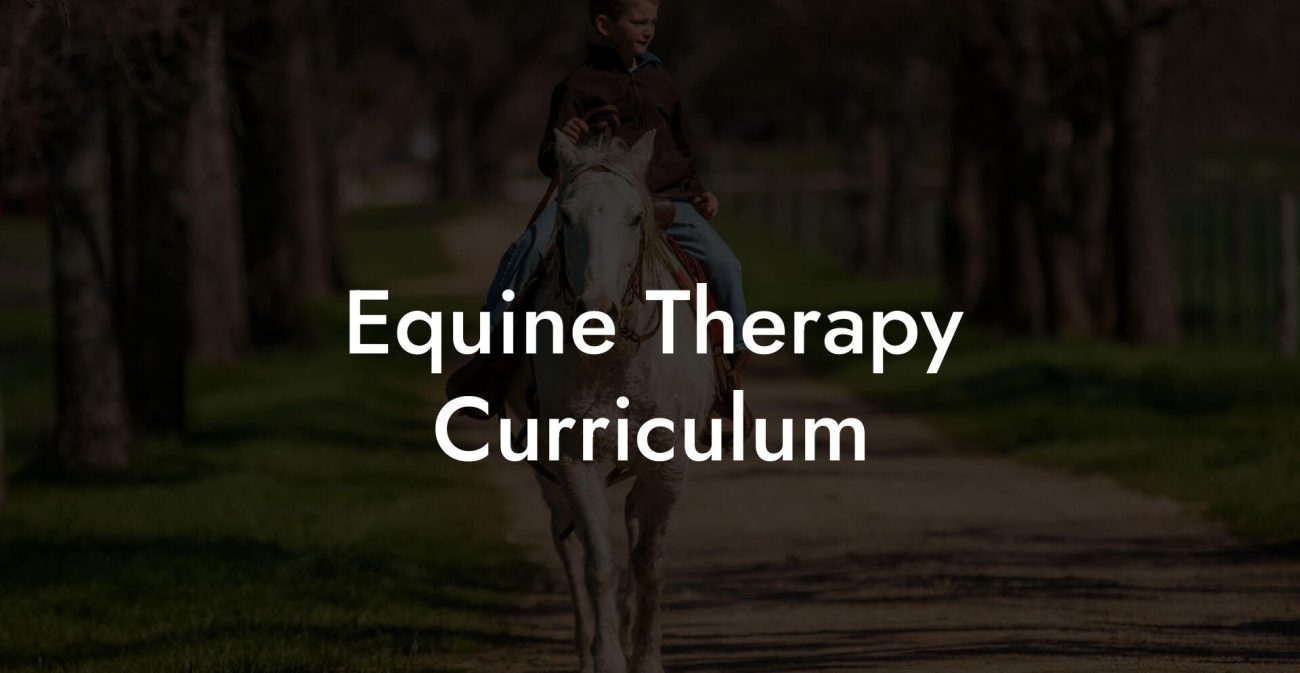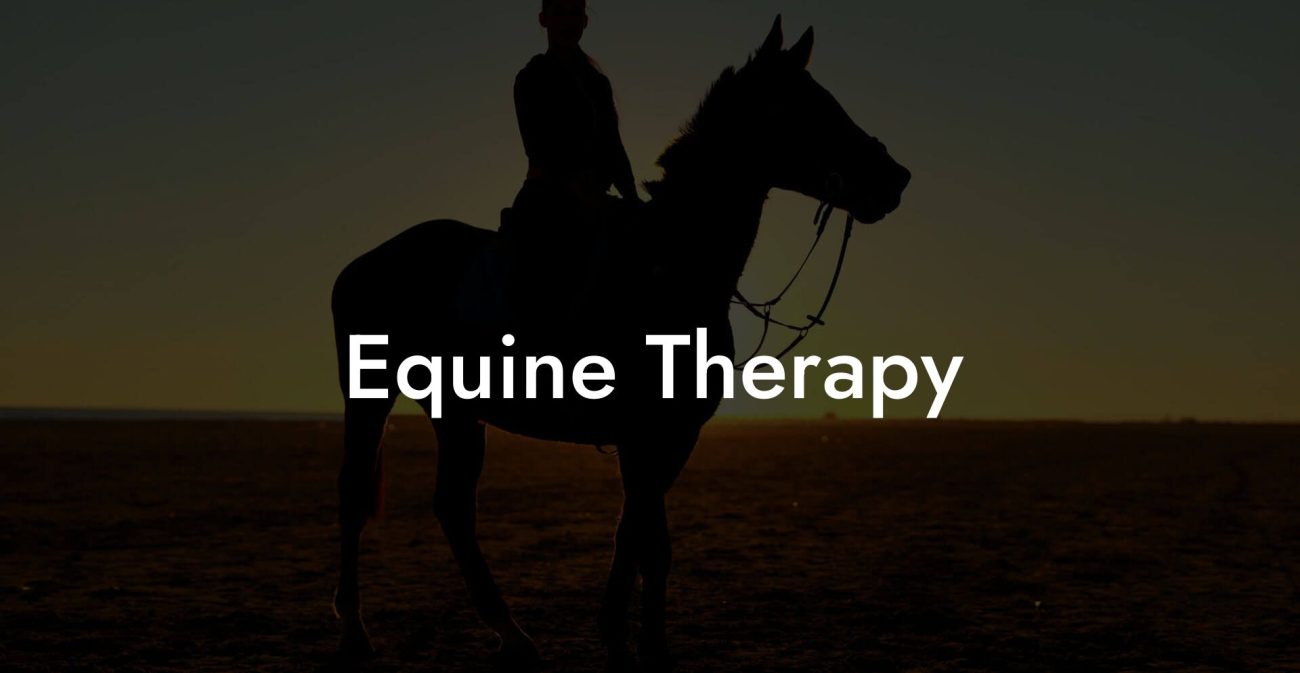Ever wondered how to turn your passion for horses into a booming business that resonates with both Gen-Z and millennial enthusiasts? Buckle up as we gallop through an all-inclusive horse training business plan that not only teaches you how to care for these majestic animals but also shows you how to create a sustainable, thriving business. Whether you're a new rider dreaming of a life around horses or an experienced trainer looking to expand, this guide is packed with real-world strategies, creative marketing insights, and practical advice to help you harness your entrepreneurial spirit and turn your stable into a powerhouse.
Quick Links to Useful Sections
- Understanding the Equestrian Business Landscape
- Why You Need a Horse Training Business Plan
- Key Components of a Winning Horse Training Business Plan
- Deep-Dive into Market Analysis and Consumer Insights
- Defining Your Training Philosophy: The Heart of Your Business
- Horse Care and Safety: A Non-Negotiable Standard
- Building a Team: Experts Who Share Your Vision
- Marketing Strategies for the Digital Age
- Financial Projections and Revenue Streams
- Risk Management: Insurance, Legal, and Safety Protocols
- Tech-Driven Tools for Business and Training Excellence
- Resources and Community Support: Your Next Steps
- Embracing Innovation: Expanding Your Equestrian Empire
- FAQ: Demystifying the Horse Training Business Plan
- Your Path to Equestrian Business Success
Understanding the Equestrian Business Landscape
The equine industry is a vibrant blend of passion, tradition, and modern entrepreneurship. Unlike modern tech startups that thrive on rapid scaling, a horse training business is built on trust, expertise, and the timeless bond between a human and their horse. But don’t be fooled, this isn’t just about barnyard know-how. Today’s market demands business savvy, creative digital marketing, and an unwavering commitment to excellent horse care.
In this section, we’ll dive into the key trends in horse training and equestrian care, discuss the competitive landscape, and explain why a well-structured business plan is your best bet to stand out in the crowd.
With the rise of social media influencers in the equestrian world and an increasing focus on animal welfare, modern equine businesses need a robust strategy that combines hands-on training with savvy digital presence. The millennial and Gen-Z audiences are looking for authenticity, transparency, and above all, a business that not only makes a profit but also gives back to the community and cares deeply for the horses.
Why You Need a Horse Training Business Plan
A comprehensive business plan is much more than a static document, it’s your roadmap to success. It gives you clarity on your mission, vision, and operational strategy, helps secure funding, and sets the foundation for every aspect of your business.
Think of it as an intricate training regimen: just as you wouldn’t let your horse run wild without strategic guidance, you shouldn’t dive into the business world without a meticulously planned course of action. A solid business plan details your goals, financial projections, marketing tactics, and the logistical nitty-gritty of running a training facility, all while ensuring that the welfare of your horses is at the forefront.
This plan also serves as a communication tool, it clearly outlines your standards, philosophies, and methodologies to clients, investors, and partners. The best part? Its adaptable framework means you can tweak and scale it as your business grows, much like introducing new training drills to keep your horse engaged and performing at its peak.
Key Components of a Winning Horse Training Business Plan
Creating a horse training business plan can initially seem as daunting as taming a wild mustang. However, when you break it down, it’s a step-by-step process that lays a solid foundation for success. Here are the key components you need to focus on:
- Executive Summary: Your pitch in a nutshell. In this section, capture what your business is all about, your mission, and why you’re uniquely positioned to succeed in the equestrian industry.
- Company Overview: Outline your business structure, the history behind your passion for horses, and the philosophy that drives your training methods. Highlight what makes your approach not only effective but also empathetic toward the animal’s well-being.
- Industry Analysis: Provide a detailed look at current market trends, target demographics, and competitor insights that help you understand where your business fits into the broader equestrian community.
- Marketing Strategy: Develop a digital-first marketing plan, replete with social media campaigns, influencer partnerships, SEO-rich content, and community engagement, to captivate your modern audience.
- Operational Plan: Detail your day-to-day operations, from training sessions and horse care routines to administrative tasks. This part should also touch on facility management and staff responsibilities.
- Financial Projections: Showcase your revenue streams, start-up costs, break-even analysis, and long-term growth expectations. This section is crucial for attracting investors and keeping your business financially sustainable.
- Risk Management and Legal Considerations: Outline the safety protocols, insurance policies, and legal requirements necessary to protect both your business and your horses.
By addressing each of these areas in detail, you create a dynamic blueprint that not only drives business success but also prioritizes the humane, comprehensive care of your equine partners.
Deep-Dive into Market Analysis and Consumer Insights
In the age of information, a deep understanding of your target audience is crucial to crafting a niche business plan. For a horse training business, this involves unraveling the trends that speak to modern horse enthusiasts, especially those from Gen-Z and millennial demographics.
Consider the transformative impact of social media, where stunning visuals and heartfelt stories about horsemanship can make your business go viral. Consumers today are not only looking for high-quality training techniques but are also drawn to businesses that advocate for ethical horse care, sustainability, and holistic living.
Analyze local demographics, think of the rising number of urban equestrians and the growing popularity of virtual training sessions. Use keyword clustering techniques in your online content strategy with terms like "modern horse care," "sustainable equine training," "digital horse training programs," and "ethical horse business" to increase your search ranking and attract the right audience.
Additionally, research competitors in your local area and beyond. Identify gaps in the market, maybe a lack of personalized training programs or limited options for beginner riders, and tailor your offerings to meet these needs. Position your business as not only a center for horse training but also a supportive community for horse lovers seeking balance between tradition and innovation.
Defining Your Training Philosophy: The Heart of Your Business
Your training philosophy isn't just a set of methods, it reflects your values, influences your clients, and sets the tone for your interactions with your equine companions. Today’s clientele, especially among millennials and Gen-Z, crave authenticity and transparency. They want to know that behind every technique lies a commitment to ethical, empathetic, and innovative care.
Craft a training philosophy that emphasizes positive reinforcement, trust building, and consistent care. Highlight the importance of patience and empathy, qualities that are essential not only in training horses but also in building long-term client relationships. Consider including elements such as:
- Holistic Care: Emphasizing overall horse health, proper nutrition, and regular wellness check-ups.
- Modern Techniques: Integrating technology (like training apps and biofeedback devices) to monitor progress without compromising the natural bond between horse and trainer.
- Ethical Practices: Committing to humane training methods that focus on building mutual trust rather than instilling fear or discomfort.
- Community Focus: Encouraging a collaborative environment where clients and trainers share ideas, success stories, and support one another in the journey toward equine excellence.
As you articulate your philosophy, remember that this section not only educates potential clients about your methods but also sets you apart from competitors who may rely on outdated or less inclusive practices.
Horse Care and Safety: A Non-Negotiable Standard
At the core of any successful horse training business is a steadfast commitment to the care, safety, and overall well-being of your horses. After all, your business reputation rides on the vitality and happiness of your equine athletes.
Modern horse care goes beyond feeding and grooming. It involves a comprehensive understanding of equine nutrition, regular veterinary check-ups, and diligent facility maintenance. For millennial and Gen-Z clients, authenticity in care practices is everything. Highlight how you use organic, sustainable feeding practices, ensure ample exercise, and provide regular veterinary screenings.
Moreover, incorporate state-of-the-art tools and methods in your care routine. For instance, digital health-monitoring gadgets can track a horse’s activity and well-being, while eco-friendly stable designs contribute to sustainability. By weaving cutting-edge technology and ethical practices into your operations, you show that caring for horses and running a business can go hand in hand.
Emphasize your health and safety protocols, detailing emergency procedures, sanitation practices, and regular staff training sessions. This establishes trust with potential clients who want assurance that their beloved horses are in safe hands.
Building a Team: Experts Who Share Your Vision
No equestrian business is a one-person show. To succeed in the competitive world of horse training, you need a team of knowledgeable professionals who share your passion for ethical training and exceptional equine care.
Start by outlining the roles required to run your business smoothly, this may include certified trainers, experienced barn managers, professional veterinarians, nutritionists, and digital marketing experts. Each team member brings a unique skill set, from hands-on animal training to social media savvy.
For example, your trainers should be well-versed in modern, gentle training protocols, while your marketing team needs to understand SEO, influencer outreach, and the nuances of social media storytelling. Show potential partners and investors that your team is equipped to handle every facet of your business, from day-to-day operations to high-level strategic decisions.
A clear organizational structure and defined roles not only streamline operations but also create a supportive community that prioritizes the welfare of both horses and staff. This builds a strong brand image that resonates with a modern, conscientious audience.
Marketing Strategies for the Digital Age
In today’s interconnected world, even traditional industries like horse training must adapt to the digital age. A holistic approach to digital marketing is essential to reach a broader, younger audience who values authenticity, transparency, and a blend of old-school passion with modern innovation.
Start by optimizing your website for SEO using semantic keyword clustering techniques. Incorporate terms like "professional horse training," "ethical equine care," "modern horsemanship," and "sustainable horse business" throughout your content. This not only improves your search engine ranking but also directly appeals to the interests of Gen-Z and millennial audiences.
Leverage social media platforms, Instagram, TikTok, YouTube, and Facebook, to showcase behind-the-scenes training sessions, heartwarming success stories, and innovative care practices. Use video content, live Q&A sessions, and influencer partnerships to create an engaging, interactive experience. Don’t shy away from humor and authenticity; share your day-to-day challenges and triumphs in a fun, relatable manner.
Additionally, invest in email marketing, blogging, and local SEO to build a strong community base. Consider offering exclusive digital content, such as online training modules or webinars, to further engage your tech-savvy clientele. By creating a multi-channel marketing strategy, you not only extend your reach but also solidify your position as a modern leader in the equestrian industry.
Financial Projections and Revenue Streams
A key element of your business plan is a detailed financial forecast that lays out your revenue streams, cost structure, and profitability timeline. This section is critical for securing investors and keeping your business on track.
The equestrian industry has multiple revenue streams. Beyond the obvious training fees, consider opportunities like:
- Boarding and Care Services: Offer specialized horse care programs, boarding options, and tailor-made exercise routines.
- Workshops and Clinics: Organize educational workshops on horse care, riding techniques, and training philosophies. Monetize these by charging for participation or offering premium content online.
- Merchandise and equipment: Sell branded merchandise or specialized training equipment that aligns with your business’s ethical and sustainable values.
- Online Courses and Membership Programs: Develop subscription-based online training modules and community memberships catered to aspiring trainers and horse enthusiasts.
Project your start-up costs including facility rental or purchase, insurance, equipment, and personnel. Detail your short and long-term financial goals with break-even analyses and realistic revenue forecasts. Providing clear statistics, charts, and projections makes your business plan both persuasive and professional.
It’s also wise to plan for unexpected expenses by establishing an emergency fund. As your business grows, track key performance indicators (KPIs) such as client acquisition rates, customer retention, and average revenue per client. This data-driven approach not only informs future decisions but also reassures stakeholders of your commitment to financial prudence and sustainable growth.
Risk Management: Insurance, Legal, and Safety Protocols
Running a horse training business entails inherent risks, from potential injuries to unexpected operational hiccups. This is where your risk management and legal strategies come into play, adding an essential layer of protection for your business and your horses.
Begin by securing comprehensive insurance coverage that protects against accidents, liability, property damage, and other unforeseen events. Detailed safety protocols should be standard practice in your stables, including regular facility inspections, emergency response plans, and trainer certifications.
Beyond insurance, maintain meticulous records, sign waivers with clients, and ensure all legal aspects of your business are in order. This not only safeguards your business legally but also builds trust with your clientele by demonstrating a commitment to their safety and the well-being of their equine companions.
By embedding legal and risk management strategies into your business plan, you mitigate potential challenges and set a professional standard that resonates with both clients and investors.
Tech-Driven Tools for Business and Training Excellence
In the era of digital transformation, embracing technology can give your horse training business a significant competitive edge. Modern tech tools not only streamline your operations but also elevate the training experience for both horses and clients.
Consider using horse management software that covers scheduling, client communications, payroll, and inventory management. Virtual training platforms can help you provide remote consultations, online training sessions, and digital tracking of a horse’s progress using real-time data and video feedback.
Additionally, social media management tools, SEO analytics platforms, and CRM systems designed for small businesses enable you to keep a finger on the pulse of your marketing and customer satisfaction. Integrating these technological solutions into your business infrastructure reinforces your image as a modern, innovative leader in the equestrian world.
Resources and Community Support: Your Next Steps
No business journey is complete without a strong community backbone. In the horse training business, networking with fellow trainers, participating in equestrian conferences, and engaging in local and online communities are vital to sustained growth and inspiration.
Explore professional organizations, get involved with horse care forums, and attend workshops that can expand your expertise and open channels for collaboration. Leveraging local relationships can also lead to partnerships and sponsorships that benefit both your business and the broader equine community.
Furthermore, take advantage of online platforms, like social media groups, webinars, and digital training resources, that cater specifically to modern equestrians. These forums provide a wealth of shared experiences, best practices, and innovative ideas on balancing business objectives with compassionate horse care.
By aligning with a supportive community and continuously seeking new resources, you can remain agile in the ever-evolving equestrian landscape, ready to scale your business while maintaining the highest standards of care.
Embracing Innovation: Expanding Your Equestrian Empire
It’s one thing to have a solid business plan, and it’s another to continuously innovate. The equestrian industry is evolving, so should your business. Embrace emerging trends such as eco-friendly stables, virtual coaching sessions, and even the integration of wearable technology that monitors horse performance.
For instance, consider partnering with tech start-ups specializing in equine analytics or developing proprietary mobile apps that allow clients to track their horse’s progress remotely. Besides boosting client engagement, these advancements can serve as significant differentiators in a crowded market.
Innovation also extends to how you market your success stories. Use case studies, video testimonials, and interactive blog posts to reveal the behind-the-scenes magic of your training methods. Not only does this cultivate trust, but it also inspires a new generation of equestrians who crave transparency, community, and a dash of creativity.
As you scale up, consider hosting annual events or regional competitions that celebrate excellence in training and care. These platforms are not only excellent marketing tools but also foster a vibrant community of like-minded individuals who continuously push the boundaries of what’s possible.
FAQ: Demystifying the Horse Training Business Plan
Below are some frequently asked questions that delve into the details of building and running a successful horse training business. Whether you’re just starting out or looking to refresh your current strategy, these FAQs offer key insights to guide your journey.
1. What is a horse training business plan?
A horse training business plan is a comprehensive document that outlines your business strategy, market analysis, operational plan, financial projections, and risk management protocols, all aimed at guiding your equestrian business towards success.
2. Why is a business plan important for a horse training enterprise?
It serves as a roadmap for your business, helping you define goals, secure funding, manage risks, and ensure that your equine care and training methods are consistently top-notch.
3. What are some modern marketing strategies for attracting millennial and Gen-Z clients?
Utilizing social media platforms, creating engaging digital content, leveraging SEO with targeted keywords, running influencer campaigns, and offering online training modules are some key strategies.
4. How do I integrate technology into my horse training business?
Incorporate management software, mobile apps, virtual coaching, and data analytics to streamline operations, monitor horse performance, and enhance client engagement.
5. What key factors should guide my training philosophy?
Focus on ethical, humane training methods, positive reinforcement, holistic care, and community engagement that resonate with modern equestrians.
6. How do I ensure the safety and well-being of the horses in my care?
Implement safe stable designs, regular veterinary check-ups, detailed safety protocols, and state-of-the-art monitoring systems to safeguard horse health.
7. Can I run a successful horse training business if I’m just starting out?
Absolutely. With a clear business plan, a passion for horse care, and smart use of modern marketing and technology, even newcomers can carve out a niche in this competitive landscape.
8. What financial challenges should I be prepared for?
Plan for high start-up costs, operational overheads, equipment investments, and potential insurance prices. A well-prepared financial forecast is crucial to mitigating these risks.
9. How often should I update my business plan?
As your business grows and market trends evolve, review and update your business plan at least annually to keep it aligned with your operational goals and technological advancements.
10. Where can I find additional support and resources?
Join local and online equestrian communities, attend industry conferences, subscribe to professional journals, and consider mentorship programs that offer insights and guidance.
Your Path to Equestrian Business Success
Crafting a horse training business plan is much like preparing for a challenging yet exhilarating horseback ride. It requires strategy, heart, and the willingness to innovate. As you embark on this entrepreneurial journey, remember that each step, whether it’s refining your training philosophy, ensuring top-notch horse care, or leveraging modern tech, increases your chances of success.
Your passion for horses, combined with a sound business strategy, has the power to inspire not only clients and investors but also the wider equestrian community. Embrace the challenges, celebrate the small victories, and continuously evolve with the times, because in today’s world, staying static is not an option.
As you move forward, let this guide be your trusted companion, fueling every decision with data, creativity, and a genuine desire to care for your horses. Your business is more than just training horses, it’s about building a community where innovation, compassion, and entrepreneurial spirit ride side by side.
The journey may be long and the trail sometimes unpredictable, but with a robust plan in hand and a vision that resonates with modern values, you're poised to lead your equestrian business into a future where both horses and humans thrive together.
Saddle up and get ready to transform your passion into a legacy. Your horse training business isn’t merely a dream, it’s a movement towards a more ethical, innovative, and connected world of equine care.













